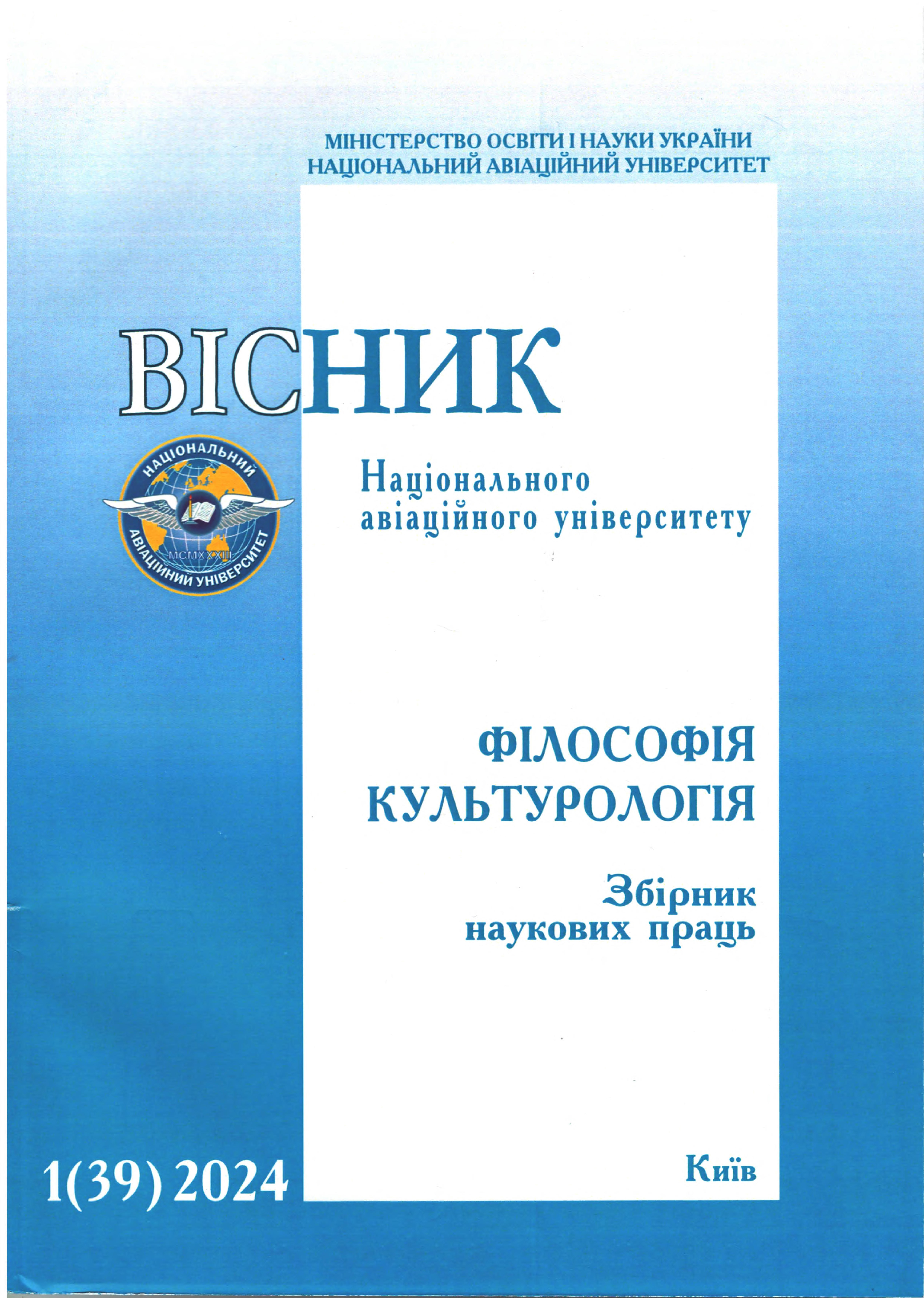TRANSFORMATION OF THE SOCIAL AND INDIVIDUAL IN THE MAN’S COMMUNICATIVE ACTION IN THE 21st CENTURY
DOI:
https://doi.org/10.18372/2412-2157.39.18472Keywords:
individual, information society, information technologies, crowdsourcing, neural networks, personality, education, social, artificial intelligenceAbstract
Inftroduction. The interconnection between individual and societal aspects remains a pivotal topic, especially with the onset of the new millennium. Recent advancements, such as chat GPT, allow for the efficient processing of large volumes of information, while Big Data gives new possibilities for analyzing the global order. These technologies prompt a reassessment of human roles and personal development amidst challenges between the individual and the social in the digital era. The aim of the study is to explore the transformation of the social and individual in the man’s communicative action in the information era, which has evolved from a project into reality. Research methods are general scientific and philosophical methods that enable the analysis of processes occurring in modern society and determine the directions for further transformation of the social and individual in the communicative actions of man in the digital era. A comparative approach contrasts various experts' predictions on resolving the individual-social tension. Research results. In the new epoch, humanity has encountered changes in all aspects of life, highlighting the need for human adaptation to the conditions of the information society. Personality development is influenced by both external and internal factors. The development of individuality, self-identification with one's era, culture, ethnic group, and social class are key to achieving life goals in society. At the same time, modern society faces challenges of the information era, requiring new competencies such as digital literacy and creativity, and collective efforts to solve global problems. The issues of the modern Internet and asociality that humanity faces call for the development of new social technologies and approaches to education and upbringing to change human consciousness and its interaction with the surrounding world. Discussion. J. Habermas's warnings about the loss of tradition's regulatory role underscore a values crisis, with modern technologies changing human-AI interactions. The growth of "smart society" requires new social technologies and concepts, such as "virtuum" (J. Kharchenko). This situation calls for rethinking in education and society to prevent techno-genic self-destruction and to adapt to an evolving social structure. Conclusions. The information society, still emerging, shows potential harms on humanity. The increasing dependency on digital platforms highlights how social aspects increasingly absorb the individual, especially through the dominance of virtual reality over the physical. This poses risks for the future of humanity, given the predominantly asocial nature of Internet communications. Adapting education and upbringing to these conditions requires a focus on developing critical thinking and emotional intelligence, enabling people to better manage their emotions and react to various situations. On a social level, new legislative initiatives are needed to ensure harmony between individual freedoms and the common good.
References
Castells M. The Internet Galaxy: Reflections on the Internet, Business, and Society. Oxford University Press. 2002. URL: https://doi.org/10.1093/acprof:oso/9780199255771. 001.0001
Levinson Р. Digital McLuhan: A Guide to the Information Millennium. N. Y.: Routledge, 1999. 240 p.
Habermas J. Teorien_om_den_kommunikative_handlen . Режим доступу: https://dkwiki.dk/ OrdBog/Teorien_om_den_ kommunikative_handlen
Броннікова Л. В. Інформаційне суспільство: прогнози соціальних трансформацій і реальність. Вісник Національного авіаційного університету. 2023. № 1 (37). С. 25-28. (Серія: Філософія. Культурологія). DOI: http//doi.org/10.18372/2412-2157.37.17570
Володін П. В. Взаємовідносини індивідуального і суспільного в процесі становлення особистості. Гуманітарний вісник Запоріжської державної інженерної академії. 2009. Вип. 39 С. 62-70.
Дротянко Л. Г. Цифровий вимір сучасного етапу цивілізаційного розвитку соціуму. Вісник Національного авіаційного університету. 2021. № 1 (33). С. 16-21. (Серія: Філософія. Культурологія). DOI: http//doi.org/10.18372/2412-1257.33.15635
Пода Т. А. Соціокультурні аспекти феномена інтернетзалежності. Вісник Національного авіаційного університету. 2018. № 2 (28). С. 107-111. (Серія: Філософія. Культурологія). DOI: https://doi.org/10.18372/2412-2157.28. 13384
Сухова Н. М. Роль трансформації мови комунікації в освіті людини цифрової ери. Вісник Національного авіаційного університету. 2023. № 2 (38). С. 100-105. (Серія: Філософія. Культурологія). DOI: https://doi.org/10.18372/2412-2157.2.18122.
Харченко Ю. В. «Віртуум» як інноваційне середовище в «цифровій цивілізації» (філософсько-гносеологічний та онтологічний аспекти). Вісник Національного авіаційного університету. 2023. № 2 (38). С. 18-23. (Серія: Філософія. Культурологія). DOI: http//doi.org/10.18372/2412-2157.2.18105.

